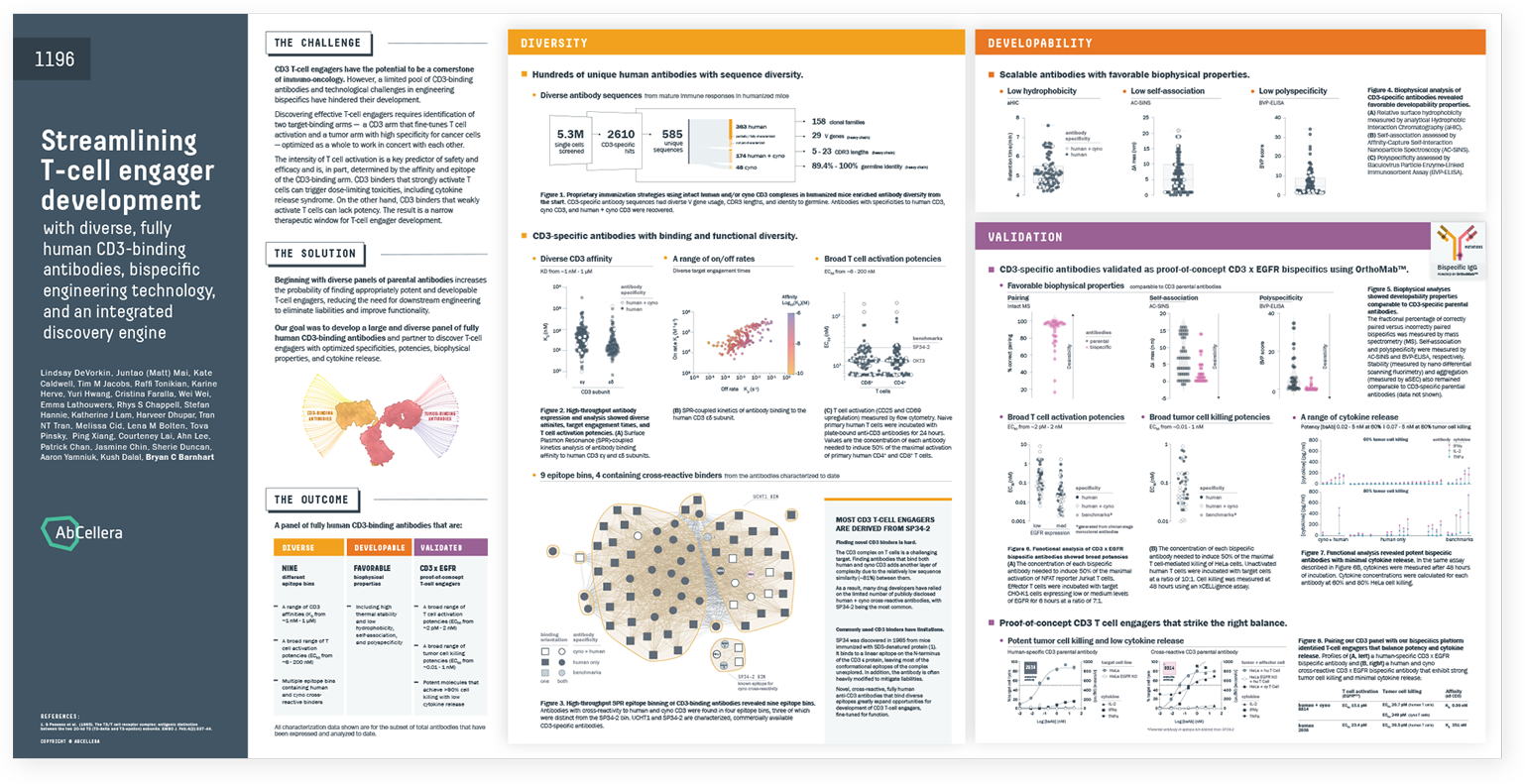Streamlining T-cell engager development with diverse CD3-binding antibodies, bispecific engineering technology, and an integrated discovery engine
The Opportunity
Immunotherapies are powerful cancer treatments that help the immune system find and destroy cancer cells. CD3 T-cell engagers — a type of immunotherapy — are bispecific or multi-specific antibodies that redirect cancer-killing T cells to tumor targets. They bind both T cells and cancer cells simultaneously to bring the two cells in close proximity, resulting in T cell activation and killing of the target tumor cell.
Developing effective T-cell engagers requires discovery of two parental antibodies — a CD3-binding arm that fine-tunes T cell activation and a tumor-binding arm with high specificity for cancer cells. Pairs of parental antibodies that function effectively in concert with each other are rare, necessitating diverse panels of antibodies that can be paired and tested at scale to find optimal clinical candidates.
Our Solution
We used our integrated antibody discovery, characterization, and engineering technologies to discover a large panel of fully human CD3-binding antibodies that are diverse, developable, and validated.
The Presentation
New data presented at SITC 2022 include epitope binning analysis revealing antibodies with key species cross-reactivity that bind epitopes distinct from commonly used parental antibodies, including SP34–2. The new data also include details about a second discovery campaign strategically designed to enhance the number of cross-reactive antibodies in the panel, resulting in hundreds of additional unique antibody sequences.
Engineering antibodies that potently eliminate cancer cells without inducing toxicity has been a significant challenge limiting T-cell engager development. In proof-of-concept experiments, we used our OrthoMab™ bispecifics platform to generate CD3 x EGFR T-cell engagers. High-throughput functional and biophysical assays identified scalable and potent T-cell engager molecules that maintained low levels of cytokine production.

